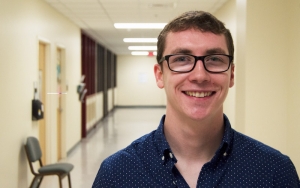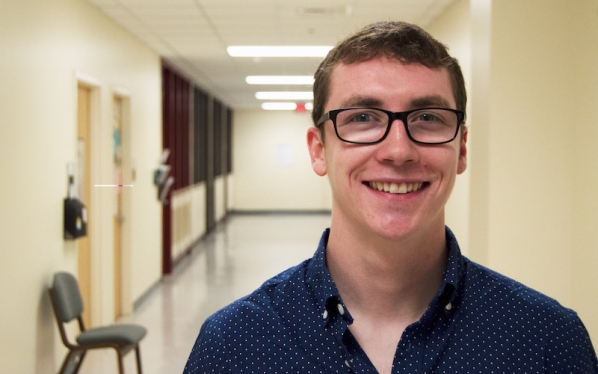Zack Beasley ('19) has always loved history, but it wasn't until his college experiences at App State that he understood why good history teaching is essential. "History is the perfect subject to teach students how to detect bias, research, develop claims, and then back them up," he says. "When you teach history you help students develop so many skills; they think more critically, form arguments, and they learn how to go past what the instructor tells you."
"When you teach history you help students develop so many skills; they think more critically, form arguments, and they learn how to go past what the instructor tells you."
A native of Greenville, NC, in the eastern part of the state, Zack visited other large in-state universities in North Carolina. When he stepped onto the App State campus, however, the level of detail and care for prospective educators was more noticeable. He met with the Appalachian Community of Education Scholars (ACES) faculty & staff in RCOE, sat in on classes, and also visited with History faculty and ASU students. The level of community, as well as the cohesiveness of the education-preparation programs, made App State stand out compared to his other campus visits. "As I progressed through the history education major, my initial reactions only strengthened. ASU faculty members allow us to contribute to conversations about programs, departments, and education in general."
Zack sees room for growth at ASU. He believes that faculty should emphasize lesson planning earlier on, force students to study state standards as early as possible, and pay more attention to the practicalities of teaching in their courses - applying theory into real classroom situations. "Students should be getting ready sooner to design curriculum," he argues. Nevertheless, he credits both RCOE and the History Education Program for working together to provide new courses that provide relevant insight to 9-12 social studies instruction, offering many opportunities for professional development, and infusing courses with challenging assignments and projects with practical classroom applications.
Zack hopes that history classrooms can provide a fruitful and challenging environment for high school students. "I realize that [students'] views on world events may not necessarily change. However, if I, as a teacher, can get students to think more critically and understand the historical context of what's going on in the world, then I am succeeding as a teacher." The possibility of inspiring such a growth mindset in young learners, Zack argues, is why history education matters.
After completing his undergraduate studies, Zack earned his Master's degree in Student Affairs Administration from App State in Spring 2023. He currently lives in Harrisonburg, VA, where he works as a Coordinator of Student Staff at James Madison University.

